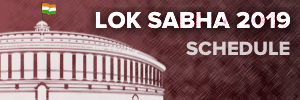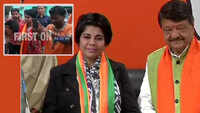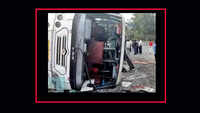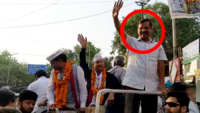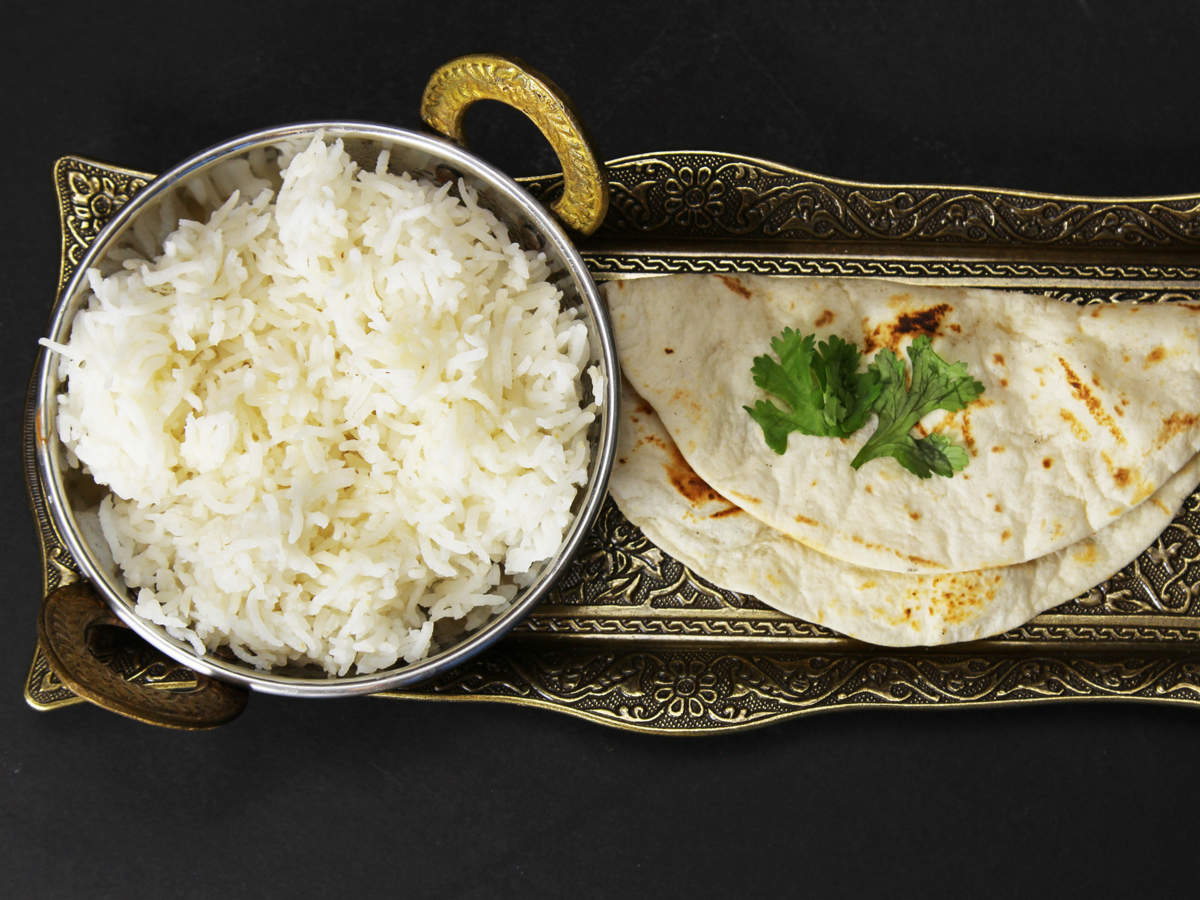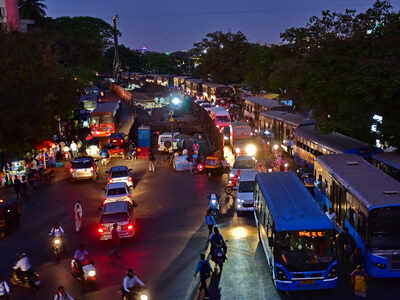
PUNE: A group of foreigners, who had come to the city to attend a wedding recently, had a hair-raising car ride through Pune’s chaotic traffic.
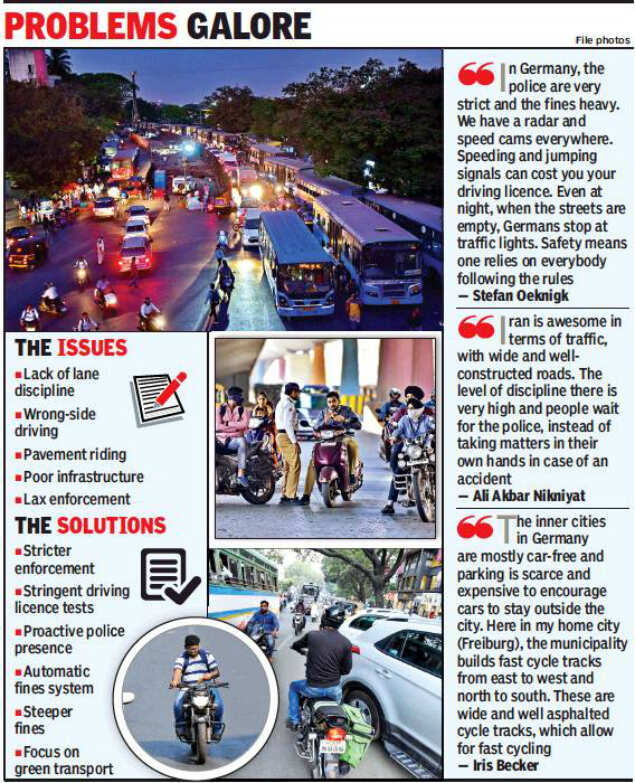
They were not alone in feeling that way. Being an education and industrial hub, the city is home to a floating population of hundreds of expatriate students and professionals, many of whom agree that Pune’s traffic lacks discipline and can be dangerous on occasion.
“My first impression was that there are no traffic rules here — everyone drives how they want. People ride triple- and quadruple seat without helmets, in the wrong direction and without headlights on at night,” German national Stefan Oeknigk, who has lived here since July 2017, said. “I figured out later that the Indian driver is more aware of other drivers and react to the traffic,” Oeknigk said.
“Wrong-side driving is one of the most pressing issues — police must stop and fine offenders. These drivers cause traffic jams and pose a risk to others just to save a few minutes,” he added.
“When I first came to India, I felt very unsafe to on the roads. In my view, the driving habits and discipline, poor enforcement of rules and corruption, and poor road infrastructure and layout are the biggest problems,” another German citizen, who did not want to be named, said.
“Better law enforcement, enhancing the road network and conditions, stricter driving licence tests and penalties and better awareness,” were some of the German’s suggestions.
“The traffic here is pathetic, made worse by narrow roads, potholes, ‘invisible’ speed-breakers and poor discipline. Honking, illegal parking, double parking and speeding are only some of the problems here,” Ali Akbar Nikniyat, an Indian-Irani who runs Café India, said.
A stronger, more proactive on-road police presence is a must, Nikniyat said. “More policemen need to be stationed on the streets during the peak hours for enforcement. Also, suitable designs for roads and infrastructure must be prepared so that traffic congestion can be avoided,” he suggested.
“Streets with more than one lane should have visible painted lanes, similar to the Pune-Mumbai Expressway. A well-designed automatic ticket (e-challan) system will go a long way in changing motorists’ mindset — if it costs too much to break rules or bribe police officers, they will start following the rules,” Oeknigk chipped in.
Iris Becker, another German national, has seen Pune change since December 1989, and wants the city to become a cycle-friendly city again. “In December 1989, we could cycle safely in Koregaon Park and even through the entire city. Over the years, the rapid growth has changed the city and the addition of four-wheelers has made it a challenge. Knowing and loving Pune, I am waiting to go back to secure and clean cycling,” she said.
Omegere Patrick, who has lived in Pune since 2014, said better engagement is the way forward. “I believe that engagement, and not enforcement, is the way forward,” Patrick — founder of the African Students Association — suggested.

One called it a nightmare, while the others were too afraid to get into the vehicle.
They were not alone in feeling that way. Being an education and industrial hub, the city is home to a floating population of hundreds of expatriate students and professionals, many of whom agree that Pune’s traffic lacks discipline and can be dangerous on occasion.
“My first impression was that there are no traffic rules here — everyone drives how they want. People ride triple- and quadruple seat without helmets, in the wrong direction and without headlights on at night,” German national Stefan Oeknigk, who has lived here since July 2017, said. “I figured out later that the Indian driver is more aware of other drivers and react to the traffic,” Oeknigk said.
“Wrong-side driving is one of the most pressing issues — police must stop and fine offenders. These drivers cause traffic jams and pose a risk to others just to save a few minutes,” he added.
“When I first came to India, I felt very unsafe to on the roads. In my view, the driving habits and discipline, poor enforcement of rules and corruption, and poor road infrastructure and layout are the biggest problems,” another German citizen, who did not want to be named, said.
“Better law enforcement, enhancing the road network and conditions, stricter driving licence tests and penalties and better awareness,” were some of the German’s suggestions.
“The traffic here is pathetic, made worse by narrow roads, potholes, ‘invisible’ speed-breakers and poor discipline. Honking, illegal parking, double parking and speeding are only some of the problems here,” Ali Akbar Nikniyat, an Indian-Irani who runs Café India, said.
A stronger, more proactive on-road police presence is a must, Nikniyat said. “More policemen need to be stationed on the streets during the peak hours for enforcement. Also, suitable designs for roads and infrastructure must be prepared so that traffic congestion can be avoided,” he suggested.
“Streets with more than one lane should have visible painted lanes, similar to the Pune-Mumbai Expressway. A well-designed automatic ticket (e-challan) system will go a long way in changing motorists’ mindset — if it costs too much to break rules or bribe police officers, they will start following the rules,” Oeknigk chipped in.
Iris Becker, another German national, has seen Pune change since December 1989, and wants the city to become a cycle-friendly city again. “In December 1989, we could cycle safely in Koregaon Park and even through the entire city. Over the years, the rapid growth has changed the city and the addition of four-wheelers has made it a challenge. Knowing and loving Pune, I am waiting to go back to secure and clean cycling,” she said.
Omegere Patrick, who has lived in Pune since 2014, said better engagement is the way forward. “I believe that engagement, and not enforcement, is the way forward,” Patrick — founder of the African Students Association — suggested.
#ElectionsWithTimes
more from times of india cities
Quick Links
Lok Sabha Election Schedule 2019Lok Sabha Election NewsDelhi Capitals teamMI team 2019Rajasthan Royals 2019RCB team 2019Maharashtra Lok Sabha ConstituenciesBJP Candidate ListBJP List 2019 TamilnaduShiv Sena List 2019AP BJP List 2019Mamata BanerjeeBJP List 2019 MaharashtraPriyanka GandhiBJP List 2019 KarnatakaAMMK Candidate List 2019BJP List 2019 WBLok Sabha Elections in Tamil NaduBSP List 2019 UPNews in TamilLok Sabha Poll 2019Satta Matka 2018PM ModiMahagathbandhanNagpur BJP Candidate ListChandrababu NaiduTamil Nadu ElectionsUrmila MatondkarNews in TeluguMadras High CourtTejashwi YadavArvind KejriwalTejasvi SuryaPawan KalyanArvind KejriwalYogi AdityanathJaya PradaSatta King 2019Srinagar encounter
Get the app

